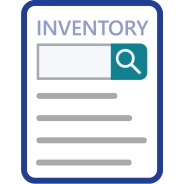
Choose from 5 options:
If you want to make or import products to sell using ingredients that are regulated as industrial chemicals, you may need to register with us.
There are different requirements for registration, depending on:
It’s important to know that many cosmetic ingredients sourced from overseas are described as 'natural' or 'organic' - such as oils, extracts and plant essences - but they may be regulated as industrial chemicals.
And many products composed of natural or organic ingredients - such as polyurethanes and essential oils - are made using a process that involves a chemical reaction.
You must register with us if you make products to sell using industrial chemicals that you’ve bought from an overseas supplier.
You do not need to register with us if you make products to sell using 100% locally sourced ingredients - as long as the manufacturing process does not produce a chemical reaction or create more industrial chemicals as a result.
You register your business with us, not your products or ingredients.
You do not need to register with us if you make products to sell using 100% locally sourced ingredients - as long as the process you use to make the products does NOT involve a chemical reaction or create more industrial chemicals as a result. However if you import any of the ingredients, you must register your business with us.
If you are unsure, see our information on the difference between blending and manufacturing chemicals.
Example 1:
Bec wants to make fragranced soap as a side business. She buys glycerin melt-and-pour soap bases, essential oils and pigments from an Australian craft shop and mixes them together without producing a chemical reaction to create her own unique products.
Bec does not need to register with us.
Example 2:
Saif wants to make an all-natural washing powder to sell at the markets. He buys pre-made soap shavings, eucalyptus oil and washing soda from Australian suppliers. No chemical reaction takes place when he mixes the ingredients with water.
Saif does not need to register with us.
Example 3:
Pete has a new skincare business from home and buys essential oils from wholesale Australian-based companies. But he imports one oil from overseas to add to one of his skin lotion line.
Pete must register with us.
You must register with us if you make products to sell using ingredients that are regulated as industrial chemicals that you’ve sourced from an overseas supplier.
After registering, you must also check if the industrial chemicals are listed on our Inventory.
Example 1:
Justin wants to make his own paint to sell at his decorating business. He buys an inorganic pigment and resin from a supplier in Hong Kong and ships it to his office in Melbourne. He then manufactures the paint at a local factory.
Justin must register with us because the pigment and resin are regulated as industrial chemicals in Australia.
Example 2:
Lyndall plans to make and sell cosmetic face cream using a new distilled fragrance that’s not available locally. She buys the fragrance from a European supplier and adds it to the face cream during production in Australia.
Lyndall must register with us because the fragrance is regulated as an industrial chemical in Australia.
Consumer and cosmetic products must also comply with other Australian laws for labelling and product safety.
You do not need to register with us if you buy products that contain or release industrial chemicals from an Australian supplier to re-sell or re-label as your own brand. (The business that originally imported the products must register with us.)
Example 1:
Karim buys a pallet of milled soap from a local wholesaler. He changes the packaging and adds his own branding to the individual bars of soap, then re-sells them at his kitchen warehouse.
Karim does not need to register with us. (The local wholesaler that imported the soap into Australia has already registered with us because most soap ingredients imported from overseas are regulated as industrial chemicals in Australia.)
Example 2:
Courtney buys a new range of scented reed diffusers at a trade fair in Perth. She prints the name of her business on the side of the diffusers and on-sells them to department stores around Australia.
Courtney does not need to register with us. (The company that imported the diffusers into Australia has already registered with us because the scent that comes with the product is regulated as an industrial chemical in Australia.)
You must register with us if you buy products that contain or release industrial chemicals from an overseas supplier to re-sell or re-label as your own brand.
After registering, you must also check if the industrial chemicals are listed on our Inventory.
Example 1:
Company XYZ buys a new kitchen cleaning product that contains grease-cutting agents and extracted essential oils from a supplier in the US. Company XYZ repackages the product for the Australian market and sells it to supermarkets around the country.
Company XYZ must register with us because the grease-cutting agents and essential oils are regulated as industrial chemicals in Australia.
Example 2:
Esther buys a crate of furniture polish from an overseas supplier and plans to sell it at her custom furniture-making business. The polish is advertised as ‘natural’ because it contains beeswax.
Esther must register with us because beeswax and most of the other ingredients are regulated as industrial chemicals in Australia.
Consumer and cosmetic products must also comply with other Australian laws for labelling and product safety.
If your product is for consumer use - such as soaps and cosmetics - check that none of the ingredients are banned or restricted chemicals.
We don't regulate consumer products and labelling, but please see our Labelling, SDS and packaging page for helpful information.